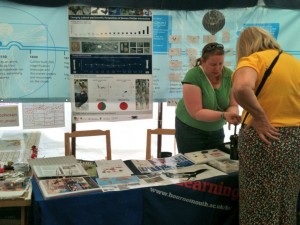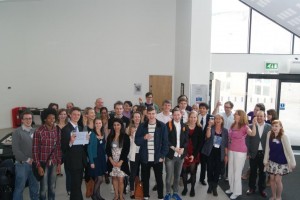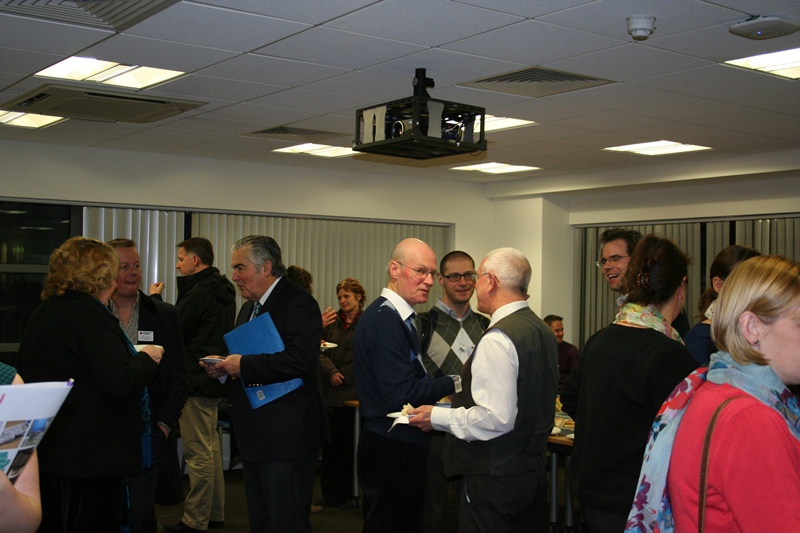The events were organised by Christchurch and East Dorset County Councils to enable the Dorset business community to hear comments from public and private strategists and investors in Dorset’s economy. Run throughout the month of November a number of staff across the university attended and took part in discussions and round table events in addition to exhibiting alongside partners such as The Dorset Growth Hub and The Dorset LEP.
Guest speakers included : Anna Rosier, Managing Director of Organix – very much a local business success story starting in Christchurch 16 years ago (now based in Bournemouth). Gordon Page, Chair of Dorset Local Enterprise Partnership provided an update on the Dorset LEP growth deal and its progression so far. Apart from highlighting the million pounds worth of investment that the LEP has so far secured from central government for the improvement of the Dorset economy, Mr Page also highlighted the need for strong and united partnerships across Dorset in order to secure more funding. He also emphasised the importance of partnership between both public and private sectors in Dorset as an essential element to Dorset’s economic growth and success.
Councillor Claire Bath, Portfolio Holder for Economy for Christchurch and Councillor Simon Tong, lead member for the Economy Growth Plan, also presented at the events. Both Councillors stressed the need for feedback from the Dorset business and general community, so that the long term benefits of the growth investments can be both communicated and realised.
Thank you to Jayne Codling (R&KEO), Claire Main (School of Tourism), Mark Painter (CfE and Business School) , David Parker, Lucy Rossiter (Cyber Security), Norman Stock (SciTech) and Liam Toms (Media School) who took the opportuntity to network with a number of local businesses and highlight how Bournemouth University can support the “Going for Growth” vision.








 Wordcamp 2014 Bournemouth
Wordcamp 2014 Bournemouth


















 Dr. Ashraf cited on ‘Modest Fashion’ in The Guardian
Dr. Ashraf cited on ‘Modest Fashion’ in The Guardian NIHR-funded research launches website
NIHR-funded research launches website Academics write for newspaper in Nepal
Academics write for newspaper in Nepal New paper published on disability in women & girls
New paper published on disability in women & girls MSCA Postdoctoral Fellowships 2025 Call
MSCA Postdoctoral Fellowships 2025 Call ERC Advanced Grant 2025 Webinar
ERC Advanced Grant 2025 Webinar Horizon Europe Work Programme 2025 Published
Horizon Europe Work Programme 2025 Published Horizon Europe 2025 Work Programme pre-Published
Horizon Europe 2025 Work Programme pre-Published Update on UKRO services
Update on UKRO services European research project exploring use of ‘virtual twins’ to better manage metabolic associated fatty liver disease
European research project exploring use of ‘virtual twins’ to better manage metabolic associated fatty liver disease